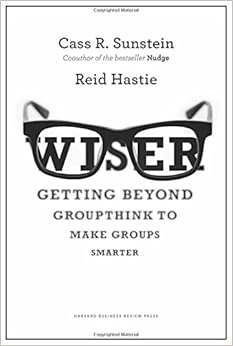Somewhere within, there has always been a secret place that felt lonely and left out -- a wee patch that felt guilty because, however righteous and courageous and true the social agreement was -- however much I agreed with a sentiment or movement -- still I could not give myself over to it with the same enthusiasm and thus social connection that others could... or anyway seemed as if they could.
What was the matter with me? Look at all those others whose enthusiasm and pontificating seemed to indicate a bare-ass thrall to, say, civil rights or anti-war sentiment or spiritual conviction or abominating right-wing cruelties or whatever. What the hell was the matter with me?! Somehow something held back. Was I a coward or a fool? It sure felt like that sometimes. I desperately wanted to join and be part and be warm ... but I could never quite do it. Sometimes it felt twisted and anti-human and ... well, shit!
After enough noticing of this characteristic, I learned to live with it. Loneliness and insufficient commitment were a character flaw ... tough titty! There was no intellectual or emotional eyewash that would allow me to escape, to join, to be warmed, to cheer or jeer in complete, orgasmic agreement and how I secretly longed to nuzzle and be warmed.
When all my friends were ass-over-appetite with excitement and praise for "On the Road" during the ascension of the "The Beat Generation," I too thought the book was exciting (and it did manage to inspire me to hitchhike across the country twice), but I also could see why Jack Kerouac's efforts had been rejected by so many publishers. It wasn't a very good book.
Good, yes, but not that good.
Last night, watching TV, an interview by Jon Stewart on "The Daily Show" somehow pierced my armor and made me feel less alone, less cowardly, less strangely inhumane. Stewart interviewed Cass Sunstein, author of a book called "Wiser: Getting Beyond Group Think." Sunstein seemed to be a pleasant enough egghead who managed to keep the TED-talk lecture tone to a minimum.
But what he said -- while obvious enough -- cut through my lifetime of uncertainty.
Briefly, Sunstein had done two surveys on hot-button issues like climate change. One survey convened a group of liberals to discuss. The other brought together conservatives who addressed the same issues. And what those surveys showed was that when like-minded liberals started to discuss something, they tended to ratchet up the liberalism. The same thing happened among conservatives. The result was that the two groups were increasingly unable to talk to each other. Their righteousness took on a life of its own and the issue under consideration grew more rather than less intractable. When individuals from each group came together, without the hoo-rah of group agreement... there was much less inability to solve problems or at least talk.
Sounds like Congress, right? Hang out with the people who agree with you and never get anything done. But it also sounds like an individualized characteristic as well. The longing to be part of a group of whatever kind -- to be warm and secure and protected and supported -- overrides much of what passes for common sense. The personal ramifications cannot be overstated in my opinion: If you really care about something, you would be wise to get the fuck out of the way. Consider spiritual life, for example. Or book burning. Or racism. Or "terrorism." Or war. Or "love." Or the slaughter of French satire-newspaper workers.
The upshot of Sunstein's words, from where I sat, was not to enjoin a kind of embittered skepticism or sign on to the least generous and most arrogant interpretation of La Rochefoucauld's maxim, "The intelligence of the mass(es) is inversely proportionate to its number."
Rather it was to point out that the human characteristic of bonding, while important and true, was not, when it comes to serious matters, entirely or even largely true. Agreement is useful right up to the point where it bars the door to actualization. An agreeable environment is not the same as a benevolent or even terribly sensible outcome.
And more important than pointing out the capacity of others to burn books or genuflect mindlessly to doctrine or manipulate the facts to accord with a rousing single-mindedness is to take a look in the bathroom mirror.
Assuming anyone took the subject seriously.
PS. It is hard in this subject realm not to think, associatively, of the seduction scene in the 1974 satire/comedy "Blazing Saddles." In it, Lili von Stupp, the Germanic white sex siren of the old west, has been tasked with seducing the new black sheriff in an effort to derail his lawful intentions. In the scene, she changes into something "more comfortable," invites the sheriff to "loosen his bullets," turns out the lights and then says ....
A video of the scene is somehow not available, but the voice conveys the action and the presumptions of the situation.

I always come back to our hard wiring for pack/herd instinct, us against them. But, as history suggests it wont change much of anything anyway, join in for the fun of it. Or decline to join for the fun of it.
ReplyDelete